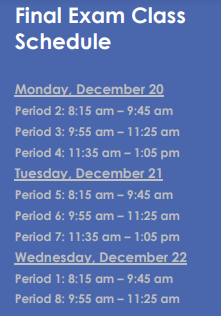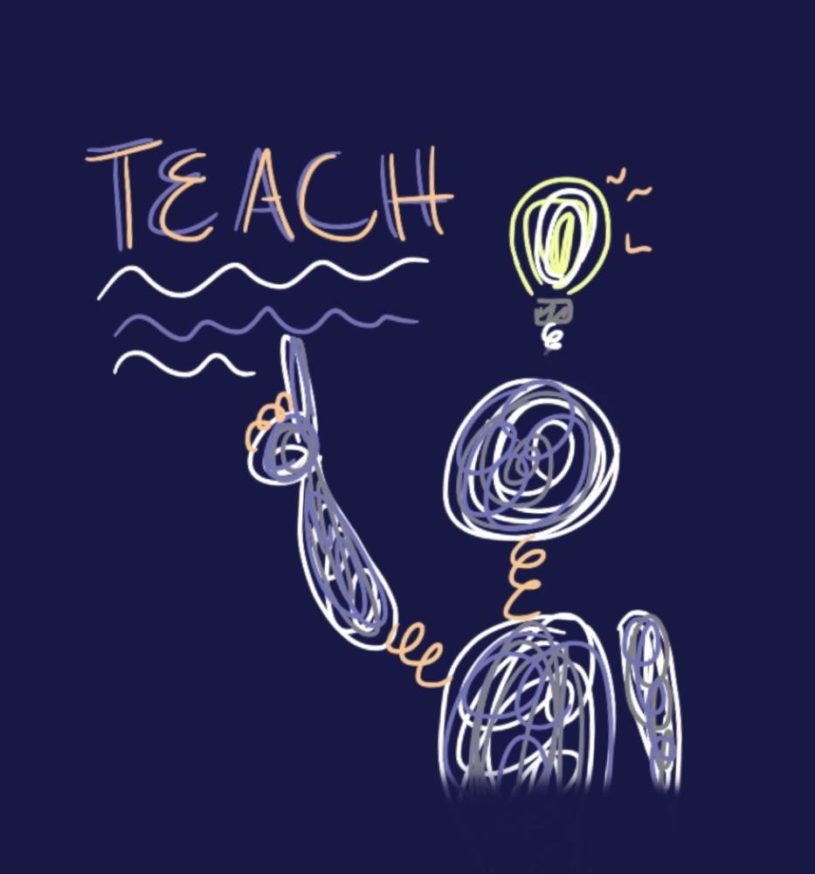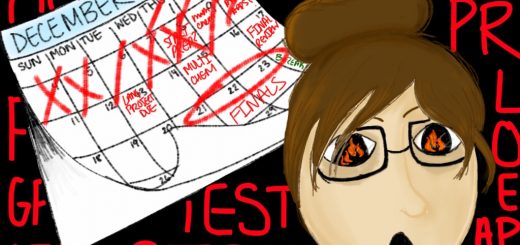How to study for finals: a prep guide for students in the wake of a global pandemic
Finals week is one of the most stressful times for high school students. With exams looming just over the horizon, many students are scrambling to relearn how to study in the wake of the coronavirus pandemic. Remote learning caused Conant to cancel finals last year, leaving many students this year unsure of what is expected of them. So, to those who may be struggling, read on for some tips about studying for finals.
1: Make a playlist
This isn’t exactly necessary, but can often help as an introductory step to studying for finals. Listening to a playlist of slow, instrumental songs without lyrics can aid in motivation, increase focus, and even help with memorization. For some, however, music acts as more of a hindrance than a help. If music distracts you from studying, try using white noise. White noise is a random mixture of sound frequencies that can be listened to at a low volume to help tune out surrounding noise and help students “get in the zone.” This is particularly helpful if you’re not able to go somewhere quiet to study, like the library.
 Paul Kim
Paul Kim 2: Know your schedule
Finals week consists of three testing days, each of which corresponds to a set of periods. Day one, December 20, is for periods two, three, and four. Day two, December 21, is for periods five, six, and seven. Day three, December 22, is for periods one and eight. This year, finals fall on the week of December 20, so prepare accordingly. Finals tend to creep up more quickly than you think, so it’s best to begin preparing early so you can practice spaced learning. By preparing over time rather than cramming at the last minute, you can improve retention and long-term recall.
3: Use your resources
This may seem like a no-brainer, but many students are hesitant to take advantage of the resources Conant offers to help with studying. Many teachers provide study guides, tutoring opportunities, or allow students to review their past tests. Your teachers are there to help you, so ask them questions and use whatever resources they offer you!
Even outside of the classroom, there are a variety of online resources which can aid in studying. For AP classes, these resources are even more streamlined, with websites such as CollegeBoard and Khan Academy offering comprehensive lessons and study guides for students to use. Apps like Quizlet are particularly good at making digital flashcards for memorizing vocabulary. There are often YouTube videos detailing full lessons for a specific class, and some Conant teachers even make their own (Greetings Mr. Kurfess!).
4: Studying techniques
So, what’s the secret? What’s the surefire way to get an A on your Biology final? Simply put, there isn’t just one correct way to do it. Everyone learns differently, but here are a few ideas to get you started.
 Johanna Selmeczy
Johanna Selmeczy Reread the textbook: One strategy is to reread any chapters that correspond to certain lessons you’ve already taken notes on. Then, add to or correct any of your existing notes to fit both what your teacher has taught you in the classroom and what the textbook says. Try to prioritize lessons you were initially confused with because this is a time consuming process. Be sure to make the notes neat and legible so you can refer back to them if you get stuck while doing practice problems later.
Redo any practice problems done during notes: In math classes especially, teachers will often go over practice problems as a part of the notes. These are designed to help test your understanding of key concepts and often therefore mirror what winds up on the exam. However, be aware that these problems often only cover the basics, and should not be the only thing you do to study. To reinforce your understanding of difficult topics, delve deeper into more challenging problems and try completing those without the help of your notes.
Redo your homework: Yes, this sounds like torture, but similar to redoing practice problems done during notes, homework is meant to aid in retention and reinforce important lessons taught during class. Doing every single homework problem again is excessive, so stick to homework you struggled with or never completed. If teachers allow, turn in any missing work during this process in order to help give your grade more of a “cushion” to fall back on if the final doesn’t go so well.
 Fair Use
Fair Use Make flashcards: This strategy is most effective for classes which require students to memorize a large amount of vocabulary, such as a language or certain science courses. It can also help with remembering formulas for a math class or dates for history. However, this technique falls short when studying for an English final, which tends to focus on key concepts rather than specific vocabulary knowledge. When studying for English, be sure to know what is expected of you: if you need to know all about To Kill a Mockingbird, put away those Sparknotes and review important themes and characters from the book.
Going through a set of flashcards every day may be hard to commit to, so try going through them every other day or once a week up until finals week. When you go over them right before your final, you’ll be surprised at how much you learn.
Make a study guide for each chapter: This method works best if you start it from the beginning of the year and continue through finals, but even if you start later you can still use it. If you already have study guides from your classes, try combining them and redoing each unit as an overall review. “I make a study guide for each chapter in math, then I combine them all to make a master study guide,” Madison Seeman, ‘22, said. “I’ve been doing it since freshman year.”
Look over past quizzes/tests: If your teacher allows the class to review past assessments, use them! Search for what you did poorly on and try to understand why. Did you have a bunch of small calculation errors? Practice being more precise and go slower on similar problems. Forgot an important concept and left a question unanswered? Be sure to go over it again until you can identify what is being asked.
 Johanna Selmeczy
Johanna Selmeczy “Ask for review guides and topic lists or make your own,” Lupita Castillo, ‘22, said. Quizzes and tests are your best indicators of how well you can regurgitate lessons in a timed setting, so use them to your advantage if they are provided to you.
Teach your peers: So you’ve redone your homework, reviewed your flashcards, and figured out what you did wrong on last week’s quiz: now what? The best way to test your knowledge is to teach it to someone else. Find a friend, classmate, sibling, or anyone else who has some free time and give them an overview of what you’ve learned. Let them ask questions and get as detailed as possible in your answers. If you can’t come up with a good answer, write their question down and review it later. If you truly know your stuff, this step will leave you entirely prepared for whatever the final throws your way.
Try a change of scenery: If you’ve been doing the majority of your studying in one location, try changing up your study space. You could stay at the Conant library, which has extended hours from 3:30 pm–8 pm from December 13th – 16th, and December 20th – 21st. The Schaumburg Library is open until 9 PM on weekdays, and 5 PM on weekends. Another option is to visit a nearby cafe or bookstore for a change of pace. Research has shown that simply moving around after studying for an extended period of time can increase retention. Going to alternate study locations can also help with recall. Additionally, these places can be good spots to meet up with study groups, rather than barricading yourself in your bedroom.
 Johanna Selmeczy
Johanna Selmeczy 5: Study groups
Study groups are a slippery slope, because they can range from harmful to helpful. However, there are some merits to studying in a group setting. You have a supportive group of fellow students willing to help each other learn, which for some is much better than studying alone. As a group, you can go over a wider range of topics simultaneously, maximizing your time. The general mood of a study group tends to be higher than that of someone studying alone. But, if you choose to study with the wrong group, things can quickly become derailed. Although you want to study with people you like to spend time with, try to avoid studying with close friends that you know get off track easily. Surround yourself with people who have a similar learning style to you and work together to stay on task.
6: Final reminders
As a whole, finals are stressful, particularly post-pandemic. However, it is not impossible to do well if you prepare accordingly. Stay positive! Remember that a grade does not define you, and reach out if you need help.




Recent Comments